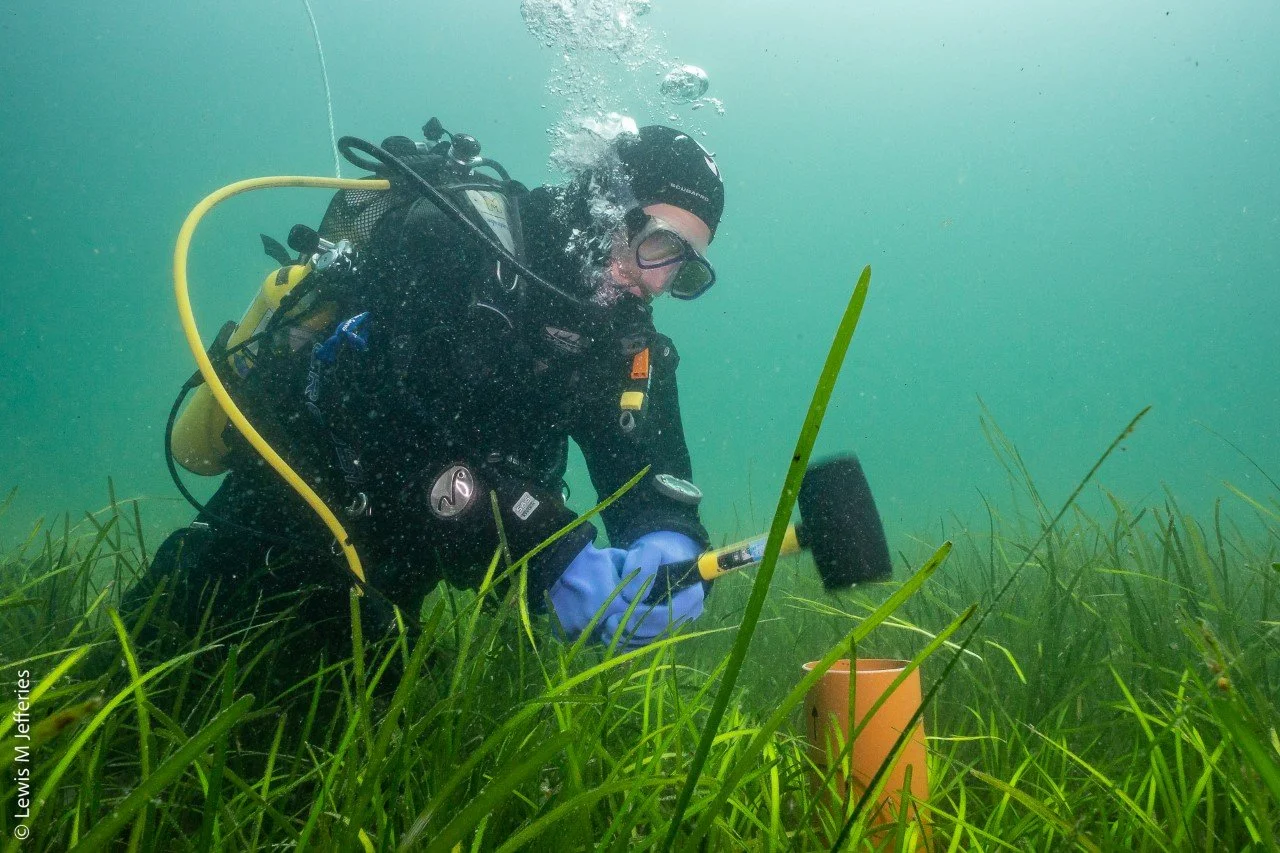Biodiversity and Ecosystem Services
Seagrass meadows are known as “blue carbon” habitats due to their capacity to capture and store high levels of carbon. Research-informed restoration of seagrass habitat represents a valuable and promising nature-based solution to address the climate crisis by providing carbon sequestration services while enhancing biodiversity. The Oxford Seascape Ecology Lab has been working collaboratively on the “Seagrass Seeds of Recovery” project to outline a blueprint for seagrass restoration in the UK, guided by our seascape ecology approach and geospatial science. This project has been supported by Ofwat (Water Services Regulation Authority).
Alongside Project Seagrass and the Nature-based Solutions Initiative, our team has produced a technical report illuminating a roadmap towards the future adoption of a UK Seagrass Carbon Code to unlock blue carbon potential and create opportunities for biodiversity, water quality and other co-benefits. Dr Melissa Ward - a Post-doc in the Seascape Ecology Lab and biogeochemistry specialist - has identified key knowledge gaps and explored the complex regulatory and governance frameworks in the UK. By detailing these specific needs and identifying exemplary habitat-specific carbon codes, the technical report details key steps to adopting a holistic, seascape-scale approach to coastal habitat restoration. This work will be continued with further support from the Blue Marine Foundation. Another largely unanswered scientific question is how carbon offsets might vary across different approaches to seagrass restoration and preservation - a key stepping stone towards implementing seagrass carbon offset projects. Melissa has also been leading a modeling project to address this question with a team of scientists and collaborators from Oxford and beyond.
Read more about our recent technical report and policy brief here.
